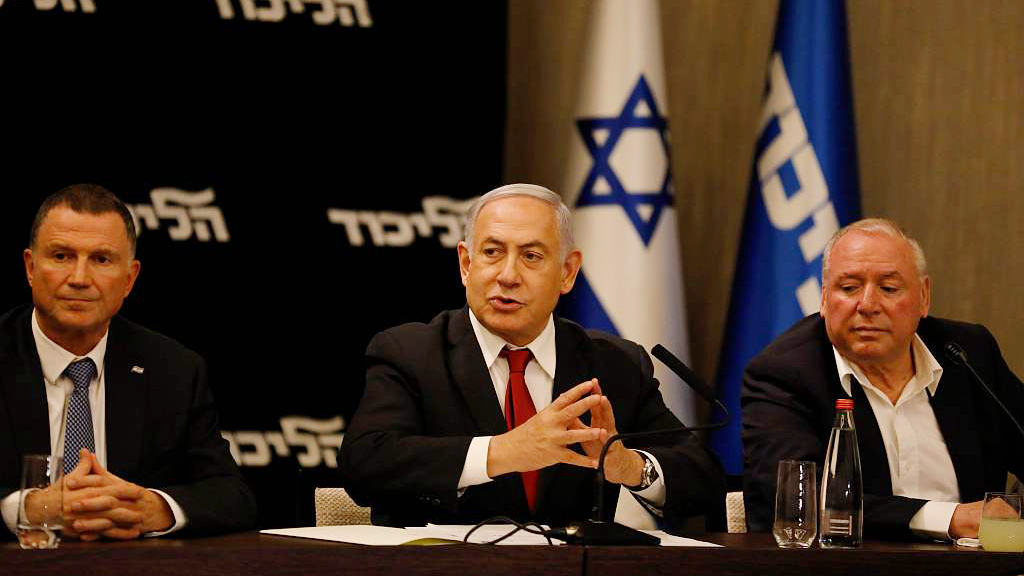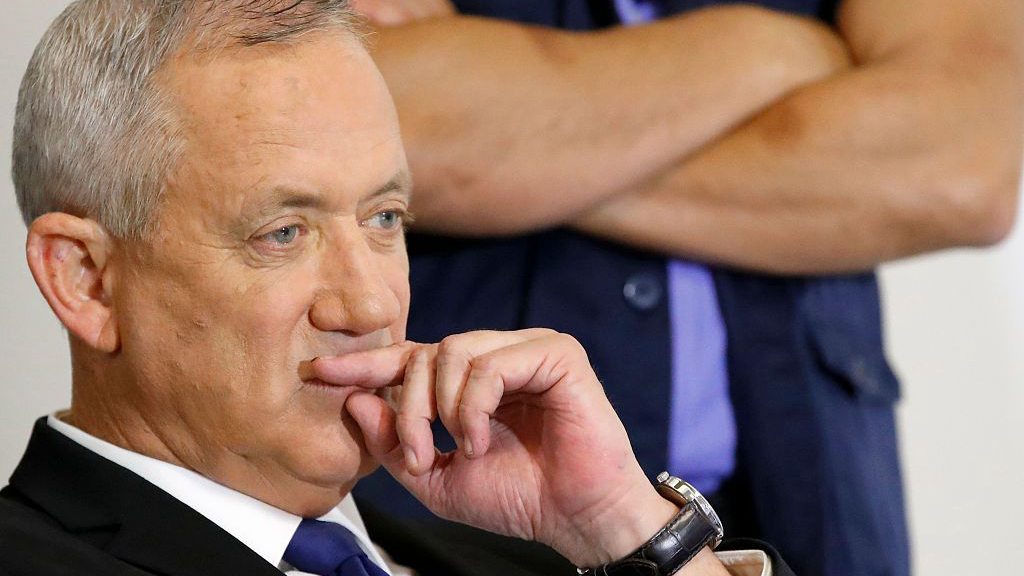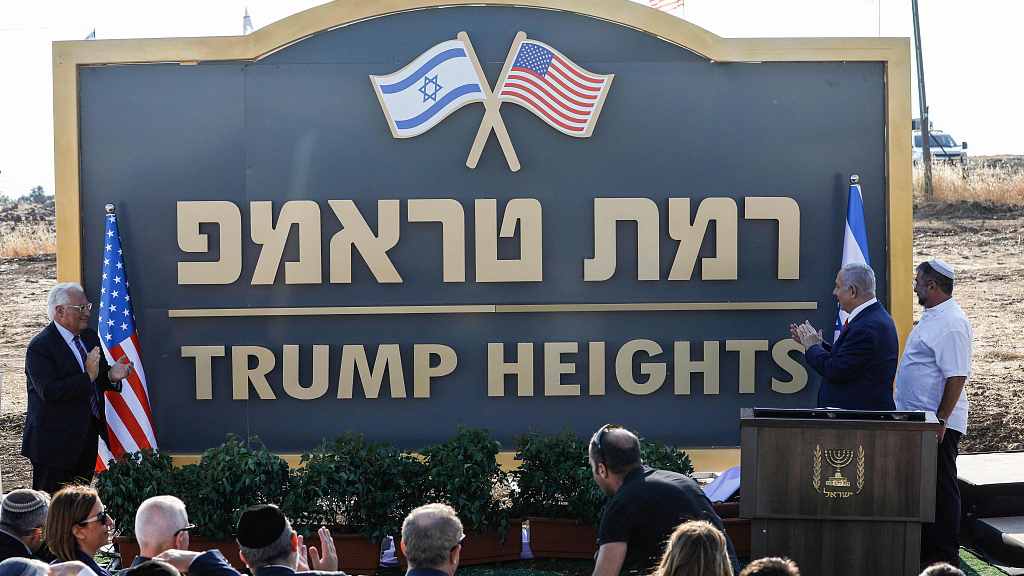
Israeli President Reuven Rivlin will on Sunday start consultations with the parties about choosing a leader to put together a coalition, after right-win Prime Minister Benjamin Netanyahu failed for the second time in five months to secure a clear election victory in the parliament.
Netanyahu faced Israeli media headlines on Friday suggesting power is slipping from his grasp after an election in which he trails his main rival with nearly all votes counted.
The centrist Blue and White party led by ex-armed forces chief Benny Gantz rebuffed his calls to join a unity government on Thursday.
Near-final results released on Friday by the Knesset's election committee showed Blue and White will be the largest single party in the new parliament with 33 of the 120 seats, with Netanyahu's Likud winning 31 seats, three less than it had before.
Israeli newspapers and commentators depicted the 69-year-old leader as in a weakened position, with headlines such as: "Himself Alone" and "Political Death Spasms."
Netanyahu and Gantz will now seek potential coalition allies, prominent among whom is the far-right former defense minister Avigdor Lieberman. He secured eight seats for his Yisrael Beitenu party, making him a potential kingmaker.
Increased turnout by Israel's 21-percent Arab minority saw the Arab-dominated Joint List coalition grouping win 13 seats, making it the third largest grouping.
The religious parties representing Israel's Ultra-Orthodox communities, known as Haredim, remain a significant force, with Shas winning nine seats and United Torah Judaism eight seats.
The right-wing Yamina won seven seats, the leftist Labor-Gesher six, and the Democratic Union five. The full official results will be published next Wednesday.

Retired Israeli general Benny Gantz, leader and candidate of the Israel Resilience party that is part of the Blue and White political alliance, is at a press conference in Tel Aviv, Israel, September 19, 2019. /VCG Photo
Retired Israeli general Benny Gantz, leader and candidate of the Israel Resilience party that is part of the Blue and White political alliance, is at a press conference in Tel Aviv, Israel, September 19, 2019. /VCG Photo

Israeli Prime Minister Benjamin Netanyahu and U.S. Ambassador to Israel David Friedman applaud after unveiling the place-name sign for the new settlement of "Ramat Trump," or "Trump Heights" in English, named after the incumbent U.S. president, during an official ceremony in the Israeli-annexed Golan Heights, June 16, 2019. /VCG Photo
Israeli Prime Minister Benjamin Netanyahu and U.S. Ambassador to Israel David Friedman applaud after unveiling the place-name sign for the new settlement of "Ramat Trump," or "Trump Heights" in English, named after the incumbent U.S. president, during an official ceremony in the Israeli-annexed Golan Heights, June 16, 2019. /VCG Photo
There were only narrow differences in the two main parties' campaigns on many important issues, and an end to the Netanyahu era would be unlikely to bring significant changes in policy on relations with the United States, the regional struggle against Iran or the Palestinian conflict.
One uncertainty is the timing of U.S. President Donald Trump's long-delayed Middle East peace plan, which was expected soon after Israel's election, but could unsettle a weakened Netanyahu if released during complex coalition negotiations.
On Friday, Netanyahu met Trump's outgoing Middle East envoy Jason Greenblatt, a chief architect of the plan.
Many political analysts are waiting to see how Netanyahu tries to prolong his political survival, not least to claim a public mandate in the face of possible corruption charges that prosecutors may bring within months. He denies wrongdoing, accusing his critics of mounting a witch-hunt.
In his election campaign, Netanyahu pledged to annex large swaths of the West Bank, territory Israel captured in a 1967 war where Palestinians seek a state along with Gaza and East Jerusalem. The move drew condemnation from world leaders as detrimental to achieving a lasting peace accord.
Gantz has urged redoubled efforts to restart peace talks with the Palestinians but stopped short of any commitment to the statehood they seek. He has spoken less concretely of Israel maintaining security control of the Jordan Valley.
(Cover: Israeli Prime Minister Benjamin Netanyahu speaks during his Likud party meeting in Jerusalem, Israel, September 18, 2019. /VCG Photo)
Source(s): Reuters